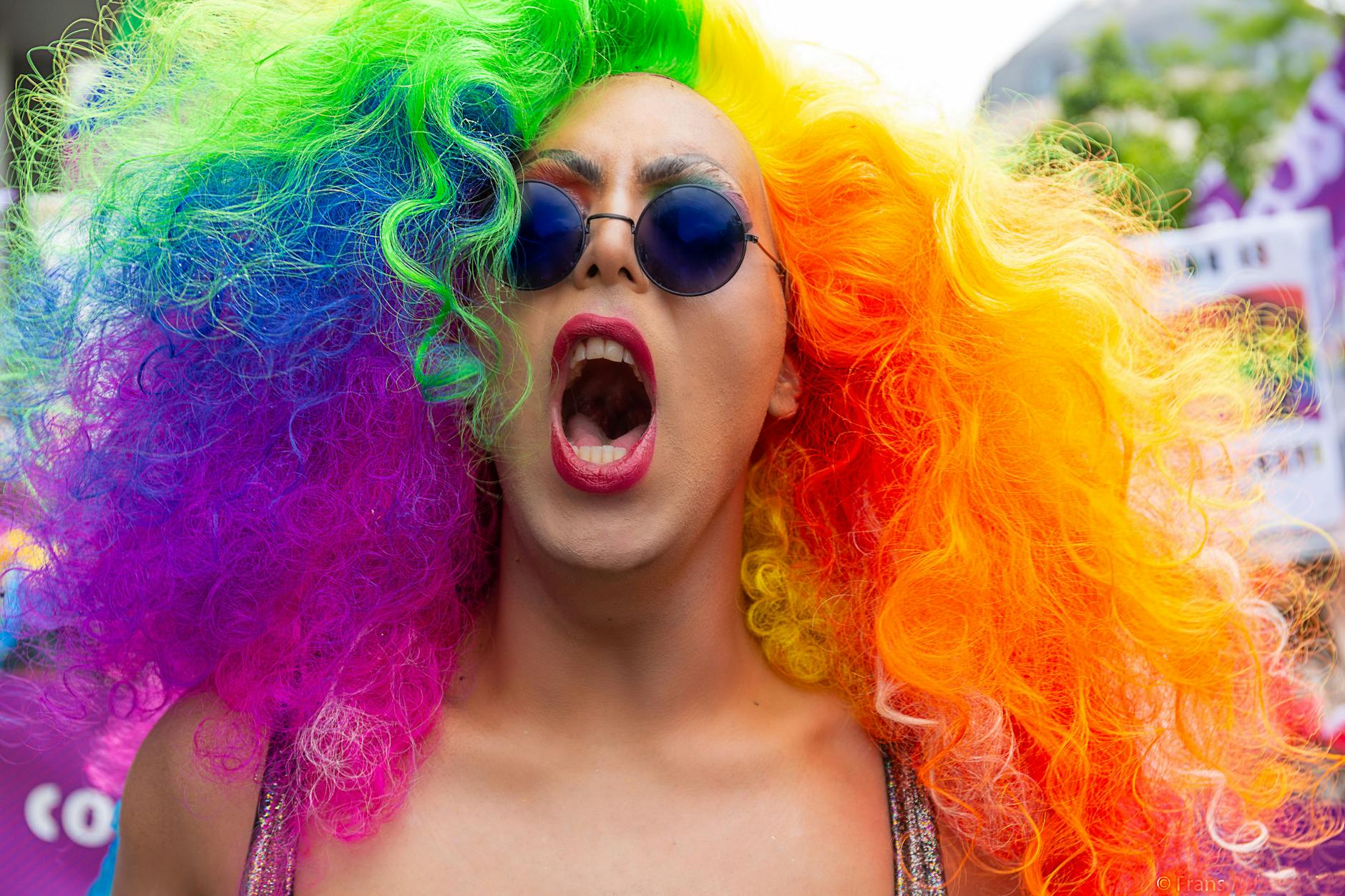Encouraging freedom of expression, the Eurovision Song Contest has frequently been dubbed the ‘Gay Olympics’ (see also: ‘Gay Christmas’, and ‘the Gay World Cup.)’
A big hit amongst the queer community, the feel-good-esque, ever the inclusive event is nothing short of iconic.
‘It’s camp, colourful, and about being vibrantly yourself.’
Having been held every year, (with the exception of 2020 due to the COVID-19 pandemic) since 1956, this year marked the 67th contest. Over those years, 52 countries have performed on the Eurovision stage, with the show proving as popular today as it ever has…
Last year’s show for example, held in Liverpool, saw a staggering 160 million people worldwide tuning in to watch, with people even hosting Eurovision parties to celebrate the final in all of its ‘camp’ glory…
If there’s any excuse needed to be ‘over the top’, it’s the Eurovision Song Contest, for which its camp nature and reliance on excess makes it a big hit amongst the LGBTQ+ community.

As in Susan Sontag’s piece ‘Notes on Camp’, she describes camp as more than just the effeminacy of gay men — it is a sensibility that represents a love of the ‘unnatural’: of artifice, exaggeration, and the ‘off’/of things not being what they are…
According to Sontag, Camp sees everything in quotation marks. It is not a lamp but a ‘lamp.’ It is not a woman but a ‘woman.’
To be camp is to understand being as playing a role-
‘Life as a theater.’

Where performativity, extravagance, and general ‘OTT’ vibes constitute the Eurovision Song Contest, as the lyrics of a skit song sung in the interval of this year’s Eurovision points to, ‘Heterosexual men in a homosexual world’, it isn’t hard to see the ‘camp’ appeal of the show.
Fabulous, darling!

Queer audience / Queer performers
A celebration of all things diverse, Eurovision is a space where people feel safe to be their authentic selves, whether that be in a seat in the audience or in a glittery, diamond-encrusted feather boa outfit on stage…
In 1961, Jean-Claude Pascal won the contest for Luxembourg with a song that told the story of a same-sex couple who were unable to openly display their love for each other (see video below). This was at a time when homosexuality was still criminalised throughout most of Europe, including in the UK whereby, under the conservative leadership of Margaret Thatcher, a series of laws, ‘section 28’, banned the ‘promotion of homosexuality.’
Where the definition of conservative is to be ‘averse to change or innovation and holding traditional values’, the Eurovision Song Contest is the polar opposite of conservative, encouraging creativity through freedom of expression.
Instead of telling us to be quiet, ‘blend in, don’t stand out, tone it down!’, the very premise of Eurovision is centred on being as outlandish as possible…
One should either be a work of art or wear a work of art.
Oscar Wilde.

The Eurovision Song Contest then, despite its ‘no politics’ stance, has evidently been making waves when it comes to wavering (pardon the pun) queer oppression since the beginning…
In 1998, Dana International of Israel (pictured below) made history as the first transgender winner of Eurovision, at a time when being trans was still heavily stigmatised (it wasn’t until as late as 2019 that the World Health Organisation declassified being transgender as a mental disorder)…

Since Dana International, five winners — Serbia’s Marija Šerifović, Austria’s Conchita Wurst, Netherlands’ Duncan Laurence, two members of Italy’s Måneskin, and Switzerland’s ‘Nemo’ (this year’s winner), have been openly queer.
This year’s winner, ‘Nemo’ of Switzerland, who flew the flag for the non-binary community, spoke to Pink News about the importance of representation in Eurovision here…
Just being able to represent this community at Eurovision is amazing. I’m so glad that I am not the only one this year. That’s even better because it shows that it’s needed.

The Eurovision Song Contest: A place for people to be accepted in all their queer glory.
“Make us equal, legal, and heard
Would you rather see us suffer
Then open up your mind and stop being so ignorant”
(Tone Sekelius, “My Way”, Swedish representative of last year’s contest).
Why does the queer community love Eurovision so much then?
For the same reason that so many queer people stereotypically love pop music, and musical theatre, and drag- anything and everything that encourages unapologetic self-expression, the expanding (dismantling) of binaries, through the arts…
Because it’s a celebration of all things ‘extra.’

‘Art pop’: Artistic revolution through the potential of pop.
Just consider ‘gay icons’ like Madonna and Lady Gaga, for example, powerful women who are empowered by their sexuality, who get away with behaving in ways that would be deemed completely ‘socially unacceptable’ in any other context…
Nothing says ‘queer’ like the bold, borderline theatrical nature of pop, as has become synonymous with queer nightlife and, of course, the Eurovision Song Contest.
Pop provides glittery escapism from a world darkened by the shadows of homophobia.
When nothing screams ‘queer’ like the Eurovision Song Contest; the singers, the dancers, the costumes, the joy, a visual statement where ‘anything goes’,
Eurovision is proof of the unifying power of music.





Leave a Reply